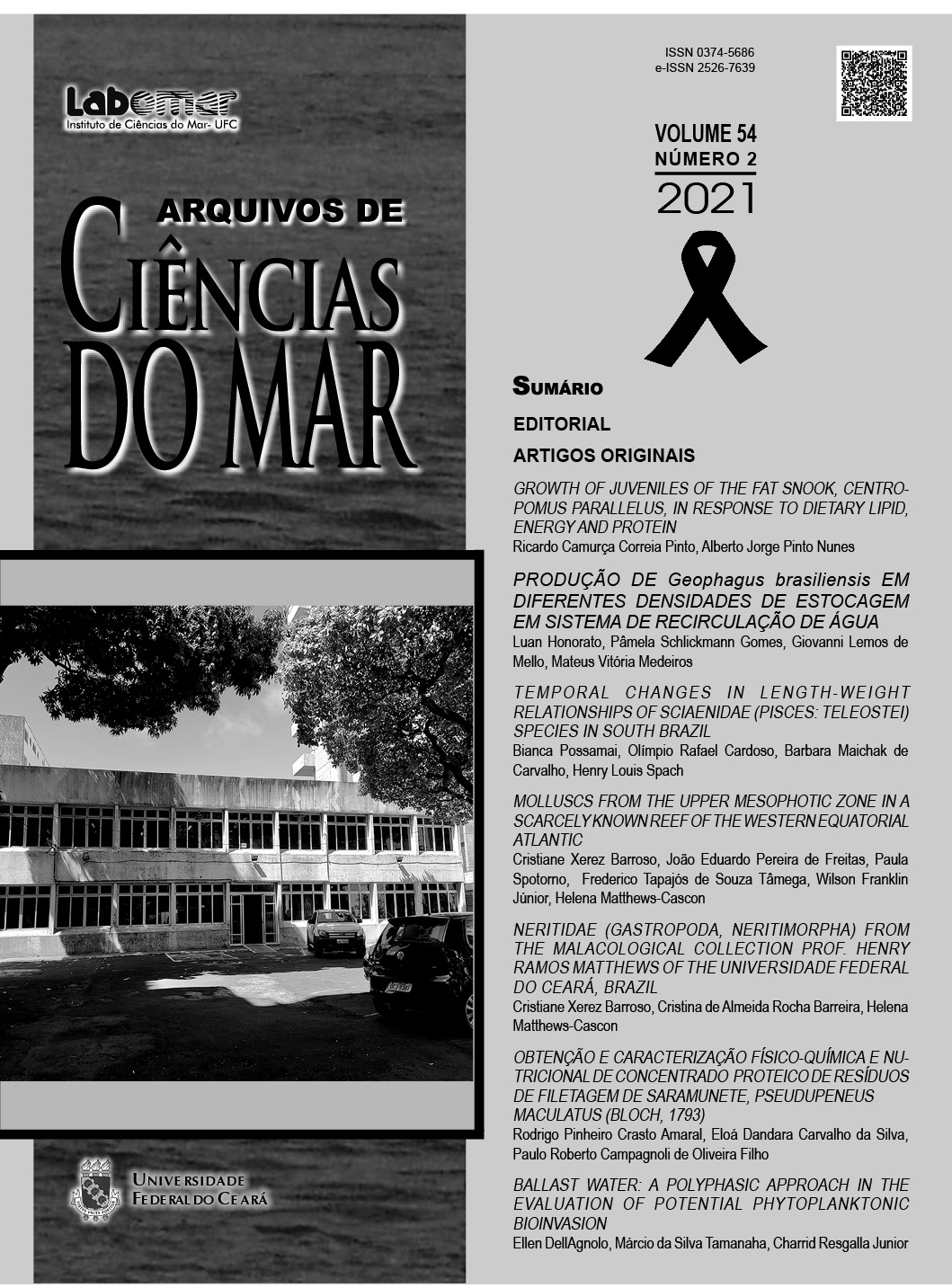MOLLUSCS FROM THE UPPER MESOPHOTIC ZONE IN A SCARCELY KNOWN REEF OF THE WESTERN EQUATORIAL ATLANTIC
Moluscos da zona mesofótica superior de um recife pouco conhecido do Atlântico Equatorial Ocidental
DOI:
https://doi.org/10.32360/acmar.v54i2.61276Abstract
Despite the increasing focus on biodiversity of mesophotic coral ecosystems (MCEs) on a global scale, some biological groups, such as molluscs, are still poorly investigated. The taxonomic diversity of the molluscan fauna of a scarcely known MCE of the Western Equatorial Atlantic, Northeastern Brazil, was surveyed. Samples were collected along the shallower strata of the upper mesophotic zone (between 33-36 m depth). Twenty-one taxa (nine species of gastropods, ten species of bivalves, and two taxa of chitons) were
listed, two of which (Novastoa sp. and Thylaeodus sp.) are potential endemic species. A new northern limit of distribution of Persicula moscatellii was established and seven species had new bathymetric records for living specimens (Barbatia domingensis, Barbatia cancellaria, Lamychaena hians, Leiosolenus bisulcatus, Pinctada imbricata, Hipponix incurvus, and Persicula moscatellii). Hipponix costellatus are the most representative species with 49 individuals, followed by Lima caribaea with six individuals. The present work is the first contribution to the knowledge of the molluscan fauna associated with consolidated substrates from this little-known MCE.
Keywords: mesophotic coral ecosystems, tropical reef, molluscan diversity, Brazilian
Province, conventional SCUBA.
Downloads
Published
Issue
Section
License
1. Proposta de Política para Periódicos de Acesso Livre
Autores que publicam nesta revista concordam com os seguintes termos:
- Autores mantém os direitos autorais e concedem à revista o direito de primeira publicação, com o trabalho simultaneamente licenciado sob a Licença Creative Commons Attribution que permite o compartilhamento do trabalho com reconhecimento da autoria e publicação inicial nesta revista.
- Autores têm autorização para assumir contratos adicionais separadamente, para distribuição não-exclusiva da versão do trabalho publicada nesta revista (ex.: publicar em repositório institucional ou como capítulo de livro), com reconhecimento de autoria e publicação inicial nesta revista.
- Autores têm permissão e são estimulados a publicar e distribuir seu trabalho online (ex.: em repositórios institucionais ou na sua página pessoal) a qualquer ponto antes ou durante o processo editorial, já que isso pode gerar alterações produtivas, bem como aumentar o impacto e a citação do trabalho publicado (Veja O Efeito do Acesso Livre).

